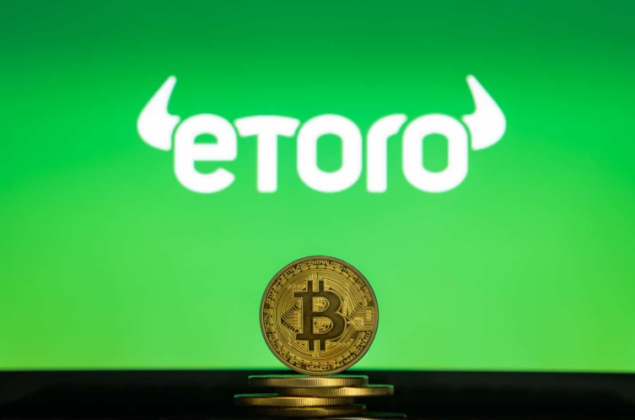
Multi-asset investment company eToro has recently made headlines with the issuance of new guidelines that have barred its US customers from purchasing four specific cryptocurrency assets.
These assets were recently categorized as securities by the US Securities and Exchange Commission following lawsuits against major cryptocurrency exchanges Coinbase and Binance.
While eToro has not explicitly cited the SEC’s actions as the direct cause for these changes, the platform has emphasized the “rapidly evolving regulatory landscape” as a key factor.
This move aligns eToro with other industry players such as Robinhood, as they navigate the increasing scrutiny and enforcement efforts by the SEC.
eToro Implements Regulatory Changes
In a new Twitter thread, eToro announced it will delist four specific cryptocurrency assets: Algorand (ALGO), Dash (DASH), Decentraland (MANA), and Polygon (MATIC). Starting from July 12, US customers will no longer be able to add new positions for these tokens.
From 6:00AM ET on Wednesday July 12th, 2023, US customers will no longer be able to open new positions in Algorand (ALGO), Decentraland (MANA), Dash (DASH) and Polygon (MATIC). Customers can continue to hold and sell existing positions in these coins. (2/5)
— eToro US (@eToroUS) June 12, 2023
eToro has emphasized its commitment to maintaining a close relationship with global regulators as part of its efforts to shape the future of the crypto industry and ensure access for ordinary investors.
By complying with the SEC’s regulatory changes, eToro aims to navigate the evolving landscape and contribute to the development of a secure and compliant environment for cryptocurrency trading.
Crypto total market cap slightly above the $1 trillion level on the daily chart at TradingView.com.
Dominoes Fall Following SEC Onslaught
Robinhood has also announced its own plans to remove certain tokens from its platform. The popular trading app on Friday revealed that it will end support for Cardano (ADA), Polygon (MATIC), and Solana (SOL) after June 27.
During the interim period, Robinhood users will still have the ability to buy, sell, and transfer these tokens to other crypto wallets. However, after the specified date, any Robinhood account holding ADA, MATIC, or SOL will automatically sell the tokens and receive the corresponding funds as credit.
Robinhood’s move aligns with the broader trend of compliance within the crypto industry. As regulatory scrutiny threatens crypto, platforms are faced with the challenge of ensuring they meet the necessary legal requirements.

Image: Personal Financial
In a separate development, Crypto.com, a prominent cryptocurrency exchange, announced the discontinuation of its institutional exchange.
According to Crypto.com, the decision was driven by a “lack of demand due to the market landscape in the US,” as stated in a communication provided to cryptocurrency media outlet Blockworks.
These recent announcements from eToro, Robinhood, and Crypto.com underscore the complex dynamics at play in the crypto industry.
As regulations evolve and market conditions fluctuate, platforms are making strategic decisions to align with compliance standards and respond to market demands.
These developments highlight the growing need for both regulatory clarity and adaptability within the cryptocurrency ecosystem.
Featured image from Daniel Grill / Getty Images


















